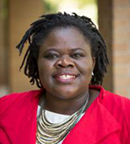The use of palliative care in hospitals in the United States has steadily risen over the past decade, with almost universal access to services in large hospitals and academic medical centers. Despite this increased access and recommendations from ASCO that all patients with advanced cancer receive palliative care and active treatment concurrently, many patients fail to receive necessary palliative care. Additionally, knowledge about palliative care in the general population—especially for those who are not already actively engaged within the health-care system—remains low.
According to the results from a large retrospective, cross sectional survey of adults assessing their knowledge of palliative care, only 11% of respondents to a survey distributed among the general population reported adequate knowledge of palliative care. Addressing this knowledge gap in the health provider, Web-based, community, or other communication-based settings is a priority to change the norms around using palliative care services, according to the study authors. The study by Ogunsanya et al was published in Cancer Epidemiology, Biomarkers & Prevention.
Study Methodology
The researchers used data from the 2018 National Cancer Institute Health Information National Trends Survey (HINTS) 5, Cycle 2, to evaluate respondents’ level of knowledge of palliative care. The data set included self-reported demographic and clinical information, such as gender, age, education level, current health status, cancer history, race and ethnicity, and frequency of health-care utilization, among other information. A total of 3,504 respondents were surveyed. Descriptive statistics, bivariate analyses, and multivariable logistic regressions were used to assess factors associated with respondents’ palliative care knowledge using odds ratios and 95% confidence intervals as measures of association.
KEY POINTS
- The researchers found that a large majority—89%—of respondents had inadequate knowledge of palliative care.
- Multivariable analyses indicated factors that increased the odds of adequate palliative care knowledge included frequent health-care utilization (defined as ≥ 2 times per year), female gender, being married, having a college degree or higher, and having a regular source of care.
The outcome of interest was measured with the question: “How would you describe your level of knowledge about palliative care?” Possible response selections included: “I’ve never heard of it,” “I know a little bit about palliative care,” and “I know what palliative care is and could explain it to someone else.”
Results
The researchers found that a large majority—89% (n = 3,000)—of respondents had inadequate knowledge of palliative care. Multivariable analyses indicated factors that increased the odds of adequate palliative care knowledge included frequent health-care utilization (defined as ≥ 2 times per year) [odds ratio [OR] = 3.01, 95% confidence interval [CI] = 2.65–3.58], female gender (OR = 2.15, 95% CI = 1.31–3.59), being married (OR = 2.02, 95% CI = 1.14–3.59), having a college degree or higher (OR = 13.83, 95% CI = 1.71–12.04), and having a regular source of care (OR = 2.67, 95% CI = 1.37–1.90). Those without a cancer diagnosis were less likely to have adequate knowledge of palliative care (OR = 0.49, 95% CI = 0.41–0.89).
“Knowledge of palliative care in the United States is low, particularly for those not already actively using their available health-care system. Public health education efforts are needed to target subgroups of the U.S. population identified by this analysis to increase palliative care knowledge,” concluded the study authors.
Improving Patient Knowledge of Palliative Care
To increase patients’ understanding of palliative care services, health-care providers should discuss palliative care with their patients, according to Motolani E. Ogunsanya, PhD, lead author of this study and Assistant Professor, Department of Pharmacy; Clinical and Administrative Sciences at The University of Oklahoma Health Sciences Center College of Pharmacy.

Motolani E. Ogunsanya, PhD
“We found that in addition to personal factors, such as education level or marital status, the frequency of health-care utilization had a significant impact on an individual’s understanding of palliative care,” said Dr. Ogunsanya. “This is a novel finding for the palliative care field and provides important insight into how we might be able to improve knowledge of this service. Since health-care providers are often the first and most trusted source of health-care information, educating physicians on palliative care and encouraging them to discuss it with their patients and caretakers is one potential strategy to increase understanding of palliative care.”
Addressing additional barriers to palliative care, including misconceptions and lack of resources or time, are also important approaches to increasing patient awareness, added Dr. Ogunsanya.
Disclosure: Funding for this study was provided by The University of Oklahoma Health Sciences Center. For full disclosures of the study authors, visit cebp.aacrjournals.org.

